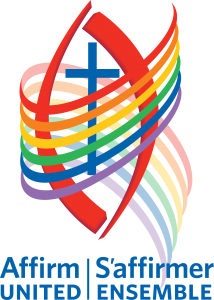Our intrepid Messiah is tired. In fact, one might even say he is peopled out. In our gospel today, Jesus has just finished up a theological conversation or sermon (depending on who’s on the receiving end of it) where he defends himself against those who continue to question and accuse him of things. This time the critics noses are out of jointed because Jesus did some healing on the sabbath. Again, Jesus, with the poor choices – eating with outcasts, and NOW healing on the sabbath.
So in true Jesus fashion he takes himself (and the disciples) away from the situation – across the Sea of Galilee- to find some time to rest and think. Except, Jesus isn’t as sneaky as he thinks he is, and the crowds see him sailing across the lake. The crowd is full of people who want to follow Jesus because of all he has done – the miracle chasers – and they watch his moves carefully. And really, the sea of galilee isn’t a sea, but rather is a lake and so in order to follow him, the crowd simply walks around the lake.
While the crowd is on the move, Jesus moves up the mountain trying to leave the controversy, the stress and the people behind. As he goes, he takes a look over his shoulder only to see that the crowds didn’t stay on the shore but were closing in on him. And it’s not a crowd of 20 or 30 people but thousands of people moving along the shore.
Now, if I were Jesus, which clearly I am not, I would have made for the closest surveillance bush to tuck behind and wait for the crowds to move past – thankfully for the people, I am not Jesus. He doesn’t slide into a “what’s a person to do to get a break around here moment”, he doesn’t whip out his second best sermon to share with the people, instead he turns to Philip, who happened to grow up in the next town over, and asks him “where can we get enough bread to feed all these people?”
The fact that this is Jesus’s first concern when he sees the crowd is the author’s way of cluing us into the fact that Jesus already had a plan in mind. But before putting that plan in motion, he wanted to test the disciples a bit. This is a theme that is found throughout John’s gospel…testing the faithful to see how deeply they actually believe. And the question catches Philip off guard…. “um, Jesus, it will take six months of wages to buy that much bread.” Luckily for Philip, Andrew comes forward with a child who happens to have five barely loaves and two fish that he’s willing to share…. But how on earth are five thousand people going to be fed with that? And how is it that there’s only one child who has managed to pack a lunch before heading out? But that is all the information we get.
Now, it’s important to understand why the emphasis is on barely loaves – you see barley bread was the food of the very poor – barley was help in contempt because it was considered only good enough for the animals. And the fish? Think sardines, rather than trout, and pickled, not fresh or smoked. Small rough barley loaves and pickled sardines – the meager, unappealing lunch of a poor child and yet it is shared willingly.
And here is where the miracle happens – Jesus doesn’t fuss over what they don’t have but rather blesses what they do have. He sends the disciples out to get everyone settled and then takes the loaves and fish, give thanks, and shares them with the crowd. And there was enough. In fact there was more than enough – 12 baskets full of leftover bread. A small offering given by the least likely person is blessed by Jesus and becomes more than enough.
It’s an incredible miracle moment – in fact it is so incredible that it is the only miracle to show up in all four gospels. This story matters. And it’s less about lunch and more about how we see scarcity and abundance. When Jesus asks Philip about how to go about getting food, his answer likely echoes our own. We don’t have enough money, time or energy to get food ready for THAT many people. It’s a scarcity mindset – there isn’t enough and there won’t be enough. It’s all the things we don’t have at the moment that might just make things better – time, energy, money, bread, help, support, hope…. Sound familiar? I’ve mentioned scarcity mindset before, a way of seeing the world that keeps us afraid, guarded, hopeless. And it’s a very human response to the world around us, even in the church. So what we see in Philip is a very human reaction to a very big problem.
Even Andrew is skeptical about bringing forward the child with the packed lunch. Five barley loaves and two fish, what are they among so many? I imagine Andrew whispering those last seven words. It’s something, but not enough of something. A very human response. Facing the system injustice and intolerance in our world, we wonder if our little actions really do make a different, and if they are worth anything (spoiler… they are).
Despite this scarcity thinking and skepticism, Jesus takes the child’s offering without scolding or hesitation. There’s just a blessing, no fanfare, no fireworks. Just simple, gracious sharing that leads to abundance.
Preacher and theologian Barbara Brown Taylor calls miracles like this “local miracles.” They aren’t big or show-y – they are everyday kind of miracles. The kind that happen in church kitchens, food banks, and around tables. They happen in whispered conversations, back alleys, and extended hands. This endless feast of bread and fish is a local miracle. It’s grounded in community. It’s about trusting that there will be enough.
There are all kinds of theories as to what this miracle really means, how it really happened. And quite honestly that’s all fine and good, but maybe the miracle story is about more than food. Maybe we need this miracle story because it is about generosity and abundance and about God meeting our needs. It’s about choosing seeing abundance over scarcity. And this is really hard to do when the world around tends to lean into the fatalism of scarcity – not enough to go around, we can’t afford to think of others, take care of number one first. Money, time, energy, compassion – it’s all scarce – there’s no way we change that, right?
This is the very reason we need this local miracle story, another story of a shared meal that brings about connection and trust. God’s economy doesn’t promote panic buying and toilet paper hoarding but rather an abundance that is found through sharing what we have. It’s kind of like a church potluck where we hold our breath (well, during those times when we don’t use a sign-up sheet) not knowing if there will be enough for everyone, and miraculously everyone is fed. We can celebrate the abundance of food and the community that gathers around the table or we can grumble about what dish is missing or who didn’t bring something to share and yet is eating. It is so easy to focus on what we don’t have… not enough kids, not enough volunteers, not enough money, not enough (insert favourite missing item here). But I think we are slowly shifting our mindset … we are starting to look at what we have and we are starting to figure out how to share it.
We indeed have five loaves and two fish to offer to the world and through our sharing we create an abundance that ripples out into the community, into the world. So what are your five barley loaves and your two fish? What are Westworth and St. Andrews’ loaves and fish that we can share with the world?
What do we have that could feed others? It could be an hour of your time, a listening ear, muffins for a home bound person, a meal for a grieving family. Maybe it’s a prayer, a donation, a hug – we know it doesn’t have to be huge, it doesn’t even need to be Jesus level. Heaven help us, none of us are going to be able to feed 5000 with five loaves and two fish, but we can show up with what we have, offering what we can of ourselves and seeing the good that God does with what we give.
It’s hard work to shift from Philip or Andrew – “it’s gonna take too much money to feed all these people” “here’s some bread and some fish, not like it’s gonna be any help”. It’s hard to trust when the world is so insistent that there isn’t enough. But the story this morning, as I said, isn’t about what we don’t have but its about what happens when we offer what we DO have in love to those around us. It’s about how even the smallest, most insignificant things can, when shared, transform a moment, a life, a community, a congregation. As we continue to think about the ways in which we share what we have, as we continue working with an abundance mindset, I invite you to remember this story, to remember the miracle that a child with a bag lunch was able to feed a crowd of thousands through the simple act of sharing his lunch with Jesus and then to wonder, imagine what bagged lunch we might offer, as individuals and communities of faith. And maybe, just maybe that offering might become a local miracle of abundance for you and for others.
Amen


